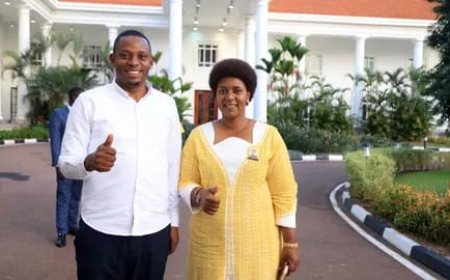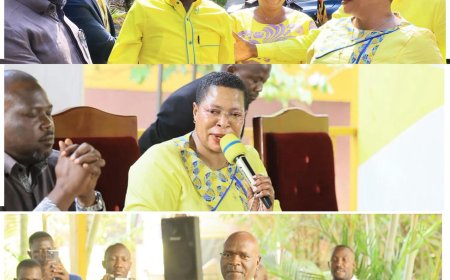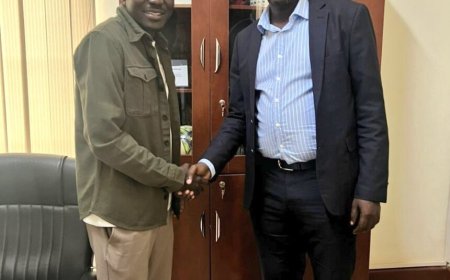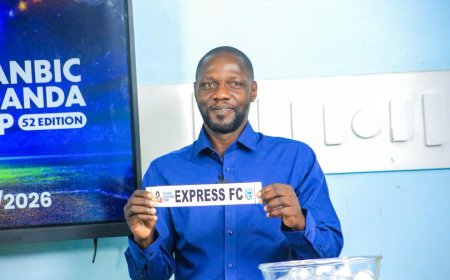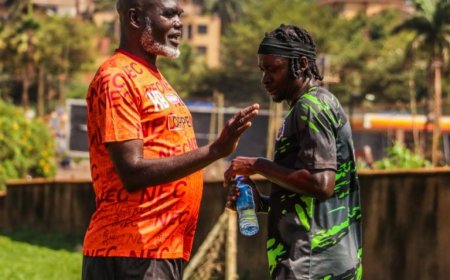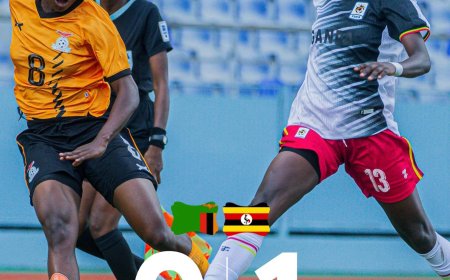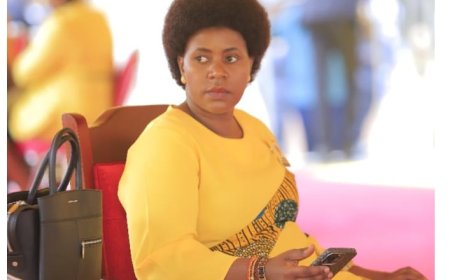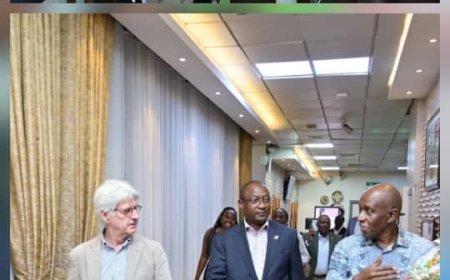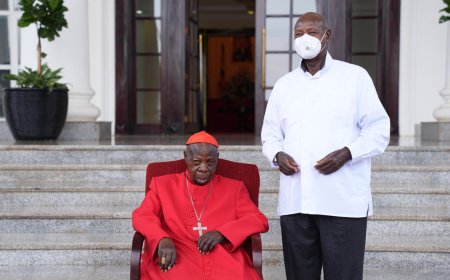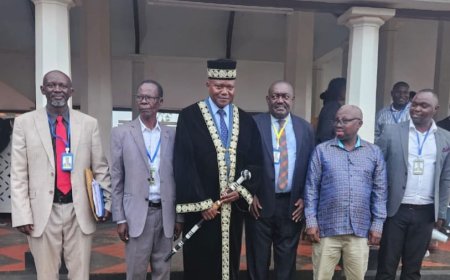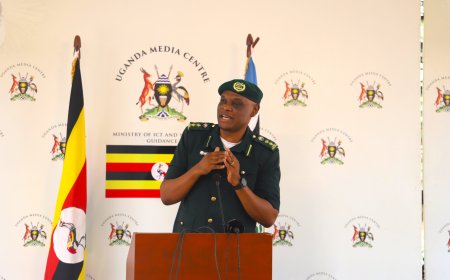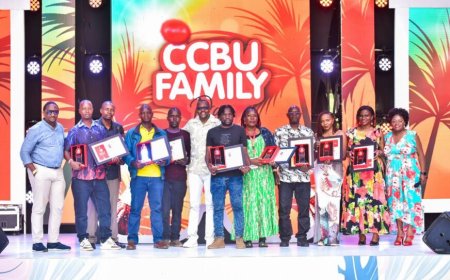Hajji Yunus Kakande, Indian Envoy Reaffirm Bilateral Cooperation at RDCs’ Luncheon in Kampala
The luncheon, held at Jikoni Restaurant, was organized to welcome back the Ugandan commissioners who successfully completed a course in Entrepreneurship and Promotion of Livelihood Generation Activities at the National Institute for Entrepreneurship and Small Business Development (NIESBUD) in Noida City, India.
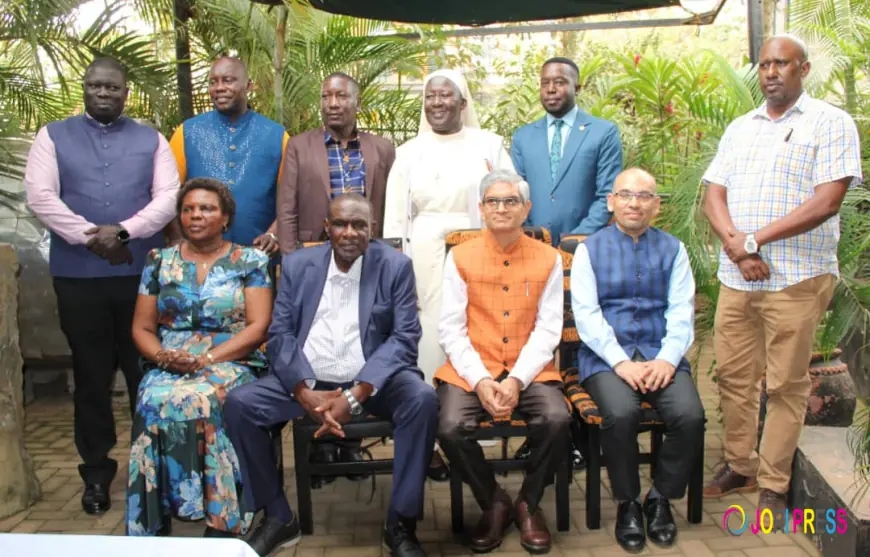
The High Commissioner of India to Uganda, H.E. Upender Singh Rawat, has hosted a delegation of 40 Resident District/City Commissioners (RDCs), Deputy RDCs, and Assistant RDCs for a luncheon in Kampala, following their return from a two-week intensive training in India.
The luncheon, held at Jikoni Restaurant, was organized to welcome back the Ugandan commissioners who successfully completed a course in Entrepreneurship and Promotion of Livelihood Generation Activities at the National Institute for Entrepreneurship and Small Business Development (NIESBUD) in Noida City, India. The team returned to Uganda on October 2, 2025, after a transformative experience that combined theory, practical exposure, and cultural immersion.
Strengthening Uganda–India Relations
In his remarks, H.E. Upender Singh Rawat expressed delight at hosting the Ugandan delegation and commended their dedication throughout the training. He reaffirmed India’s commitment to supporting Uganda’s human resource development through capacity-building initiatives.
“I am sure that this training will help you in your work,” said the High Commissioner. “This is not the end of the story. Before the end of this year, we shall offer another opportunity to other RDCs. Each year, India also offers 25 scholarships to Ugandans for higher studies.”
He emphasized that such cooperation deepens bilateral ties between Uganda and India, especially in sectors like education, entrepreneurship, and governance.
Hajji Kakande Applauds India’s Support
The Secretary, Office of the President, Hajji Yunus Kakande, commended the Government of India for its continued technical assistance to Uganda. He lauded the partnership that has enabled RDCs to gain practical skills crucial for local governance and socio-economic transformation.
“By the Indian government allowing our RDCs and RCCs to go and get training from there to gain hands-on skills cannot be taken for granted,” said Hajji Kakande. “Your journey to India was enriching and productive. I believe it will significantly enhance your professional duties and the socio-economic transformation of your communities.”
He further urged the RDCs to implement their Back Home Action Plans developed during the training, ensuring alignment with key government programs such as the Parish Development Model (PDM), Emyooga, and the Youth Livelihood Programme (YLP).
Linking Knowledge with Action
The Special Presidential Assistant on Diaspora Issues, Ms. Florence Kiremerwa, who has been instrumental in coordinating the RDC training initiatives, also thanked the Indian Government for the partnership.
“I request you, the RDCs, to put what you have learnt into your communities so that our people can benefit,” she emphasized. “If some RDCs cannot implement what they have attained from India, government should consider reviewing their performance in the next term. These trainings must yield tangible results.”
A Transformative Learning Experience
Leading the Ugandan delegation, Sr. Mary Grace Akiror, Deputy Head of the RDC Secretariat, expressed gratitude to both the Indian High Commission and the Office of the President for entrusting her with the responsibility.
“The hospitality in India cannot be measured. We were received very well, and everything was smoothly done,” she said. “We agreed that what we learnt from India will not remain there but will be executed here in Uganda.”
Participants described the program as a life-changing experience, blending academic instruction with field visits to major Indian institutions such as Dawar Leather Factory, Prime Minister’s Museum, Lotus Temple, and the iconic Taj Mahal.
RDCs Reflect on Lessons from India
Several commissioners shared key lessons and commitments from the training:
Allan Bamuha Atwoki, Deputy RDC Kyenjojo, praised India’s efficiency in government monitoring systems, noting that “every three to six hours, an officer must know the operational status of services in their area.” He pledged to adopt similar practices to strengthen local supervision and accountability.
Ismail Masaba, Deputy RDC Dokolo, was impressed by India’s mobilization of women and youth in producing locally made crafts and marketing them globally. He vowed to replicate this community enterprise model in Dokolo District.
Nicholas Kamukama, RDC Bunyangabu, admired India’s industrious population and promised to awaken local communities to embrace hard work and productivity.
Najib Mulema, Assistant RCC Kawempe Division, highlighted India’s advancement in digital trade platforms, saying he would champion e-commerce systems in Kampala to ease transactions and tax collection.
Osborn Oceng Geoffrey, RDC Amuru, praised India’s booming tourism sector and pledged to promote local sites such as the Guruguru Hills and Amuru Hot Springs as key tourist destinations.
Donanto Kasigazi Williams, Deputy RDC Bushenyi, noted the strong culture of customer care, branding, and marketing in India, saying these are crucial lessons to inspire entrepreneurship in his region.
Catherine Kamwine, RCC Mbarara City, emphasized business planning, research, and sustainability lessons, which she plans to promote among business owners in her jurisdiction.
Expanding Impact Across Uganda
So far, a total of 60 RDCs and RCCs have benefitted from similar entrepreneurship and livelihood training programs in India under the India–Uganda cooperation framework. The initiative aims to equip Uganda’s frontline government representatives with practical tools for economic empowerment and grassroots mobilization.
As the RDCs return to their respective districts and cities, expectations are high that the skills and insights gained will catalyze innovation, strengthen community-based enterprises, and reinforce Uganda’s journey toward socio-economic transformation.
“This training marks a new chapter for grassroots leadership in Uganda,” Hajji Kakande remarked. “Our partnership with India is not only about learning but about transforming lives.”
The India–Uganda partnership through NIESBUD continues to exemplify South–South cooperation in leadership, governance, and entrepreneurship development — empowering Ugandan leaders to turn knowledge into progress back home.
